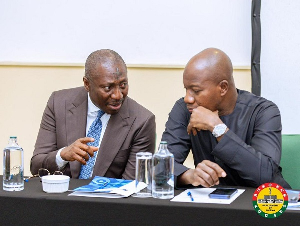John Mahama, Ghana’s current President, presumably has his back against a wall –politically speaking –but it is difficult to predict from his buoyancy.
But then, again, how can a government under constant attacks under a myriad of national challenges, actually wrest a vacant parliamentary seat previously held by the main opposition party?
Perhaps, there is a method to John Mahama’s ‘madness’ after all; something which ought to make his staunchest critics pause and reflect for a minute!
Four months to the 2012 presidential election, none can forget the tragedy that struck the ruling National Democratic Congress (NDC) with the sudden demise of President Mills, the party’s candidate.
A relatively youthful Mahama subsequently found himself leading the NDC’s charge. For unexplained reasons, President Rawlings, famous for his charisma in energising the ranks of the party he founded, did not campaign for John Mahama.
Left to his own devices, Mahama quickly rallied together a coalition of the willing, targeted and heavily marketed the NDC to a younger voter population, and relied heavily on what would appear to be a well-oiled grassroots vigorous campaign machinery of the party. The rest, as they say, is history. Through a first-round victory, he knocked out seasoned campaigners, some of whom took their victory for granted in the event of Mills’s passing!
My second reflection on Mahama’s political skills pertains to his appointment of an Electoral Commissioner. With the New Patriotic Party’s (NPP’s) eight-month-contest at the Supreme Court in the background, loud calls from many quarters for electoral reforms and louder calls for broad stakeholder consultation in the appointment of the next Electoral Commissioner, the President’s work seemed cut out for him.
How was he going to appoint a commissioner who would gain immediate acceptability from key political actors? To give the matter a legal twist, a journalist filed a suit, still pending, at the Supreme Court seeking legal interpretation on the roles of the Council of State and the President in the commissioner’s appointment.
Against this contentious background, the President suddenly announced the appointment of a new Electoral Commissioner to replace the retired Dr Afari Gyan. Of all the happenings in the aftermath of this appointment, I was most struck by the widespread acclaim and acceptance of Mrs Charlotte Osei’s sterling credentials and the virtual total lack of controversy.
Opinions of Sunday, 12 July 2015
Columnist: Sodzi-Tettey, Sodzi














